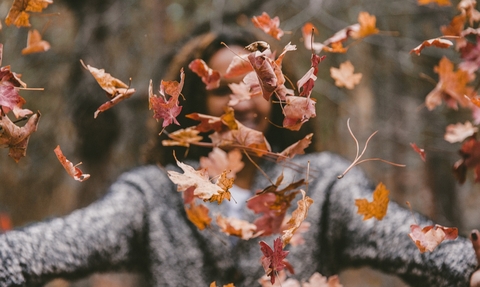
Family fun this October
We believe every childhood should be wild!
Looking for Autumn activities? Have a look below for loads of ideas for family things to do in Shropshire, including activities to download, videos to watch and places to explore.
Activities
Find spiders in your garden
Autumn is a great time to see spider webs. You could even have a go at making a web-catcher and try to collect some. Look on hedges and fences and on window frames for the classic webs of garden spiders.
Make sloe and apple jelly
Adult supervision is a must for this one, but it is a great foraging activity for children and a tasty treat for all!
Sloes are the bitter black fruit of the blackthorn, quite inedible in their raw state but they make a lovely dark jelly when combined with apples and sugar. Join the squirrels in getting your winter food hoard ready! Blackthorn is common in older farm hedges – Melverley Meadows near Whitchurch is full of them – but don’t forget to leave plenty for the birds!
Spot your first winter birds
Winter migrants such as redwings and fieldfares will be arriving from Scandinavia to feast on hawthorn and holly berries throughout the county. Look out for flocks of these thrushes anywhere there are good supplies of berries. Other winter birds to watch out for are siskins and bramblings around your garden bird feeders, and, if we’re really lucky, waxwings on rowan berries. Supermarket car parks are a great place to see them!
Go on a fungus foray
Visit your local woodland reserve to find an array of colourful fungi. Look for bracket fungi on tree trunks and traditional toadstools on rotting wood and leaf litter. Churchyards can be excellent places to find grassland species. Try Colemere churchyard, Brown Moss, Pontesford Hill, Clunton Coppice or The Ercall. Remember, some fungi are poisonous, so without expert guidance it’s better to foray with a camera rather than picking them!
Woodland exploration
The woodlands are transforming; the once green leaves taking on fiery shades; bursts of red and purple berries and shiny brown acorns and nuts tempting thrushes and squirrels.
This is the best time of year for a walk in the woods. Choose a fine clear cold day, wrap up warm and head out to appreciate the colours, kick your feet through rustling drifts of fallen leaves and be amazed by the shapes and colours of fungi. Take our autumn wildlife spotter and see who can spot everything on it first!
Help wildlife through colder months
Make a home-made bird feeder to attract birds to your garden. Not only will they benefit from the extra food when it’s cold, but you’ll be able to see them much more easily too. Identify garden birds here.
Bugs need somewhere safe to spend the winter. Make a simple bug house to give them shelter in the cold months
Help a hedgehog survive winter hibernation! Our Hedgehog Officer Kathryn has loads of tips to help these prickly creatures in your garden.
Make a shrunken head
Roast chestnuts
– Roasted sweet chestnuts are a traditional winter snack, sold in the streets from charcoal braziers. Gather your own, and try some at home! Just make sure you’ve got sweet chestnuts, not horse chestnuts (conkers). The ones you want have a densely-prickled case with no spaces between the spines, and each nut comes to a point. Some will be flat with no filling, but the best are plump and shiny – those are the ones you want.
Autumn gardening
Plant bulbs for spring flowers – Not only do spring bulbs add colour and beauty to your garden, they provide an early nectar source for those beleaguered pollinators. Now is the time to plant bulbs – choose from garden favourites such as early-flowering yellow aconites, purple or yellow crocus, blue grape hyacinths, spring squills or traditional daffodils, or go for natives suck as English bluebell or wild daffodil. Generously planted, naturalised in grass or as part of a border, they’ll reward you with a splendid show when spring comes round again.
Plan autumn colour in the garden – Is your wildlife garden a bit dull at this time of year? Plan for a bit more colour next year. Trees are best planted between November and March, so it’s time to think about what would look best. Native rowan gives bright berries and good autumn colour, ornamental crab apples offer crops of red or yellow fruit, and ornamental cherries serve both for spring blossom and flaming orange autumn leaves. You can add interest right through the year with just one small tree!
Why not make your own family fun at one of nature reserves around the county?
Autumn blogs
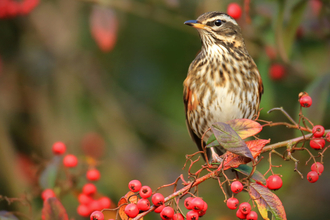
Birds on the move
For many birdwatchers, autumn is the most exciting time of year. But what are they so excited about?
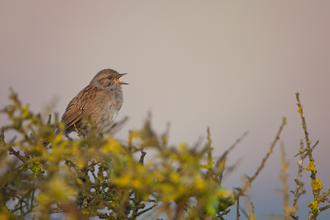
Dr Cath's Nature Notes - November 2023
This month I’m rambling along the hedgerows. The pastoral landscape of England is defined by hedges – something rarely seen in the rest…
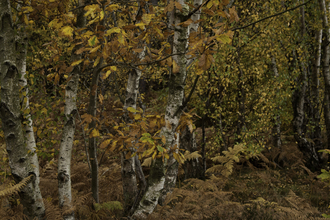
Dr Cath's Nature Notes - October 2023
Birch trees are among the first to start showing their autumn colours – tinged with yellow even in September, and soon to be dropping a…
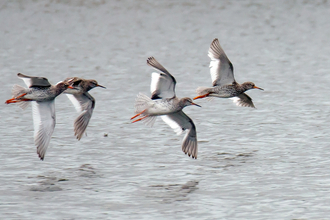
Dr Cath's Nature Notes - September 2023
There’s a great feeling of anticipation in birdwatching at this time of year. Passage migrants, by their very nature, are unpredictable…
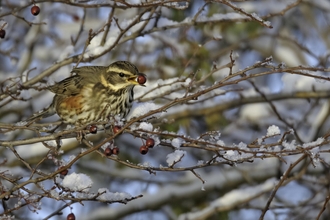
The importance of Autumn berries and seeds
Say “autumn” to someone with an interest in the natural world and there’s a good chance that person will immediately think of shortening…
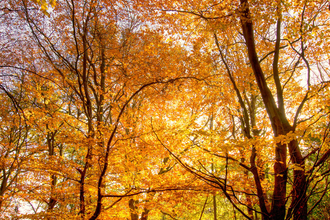
Dr Cath’s Nature Notes – October
October is, for me, the beginning of autumn proper. Colder nights, dewy dawns and the chance of frost. I love it!


